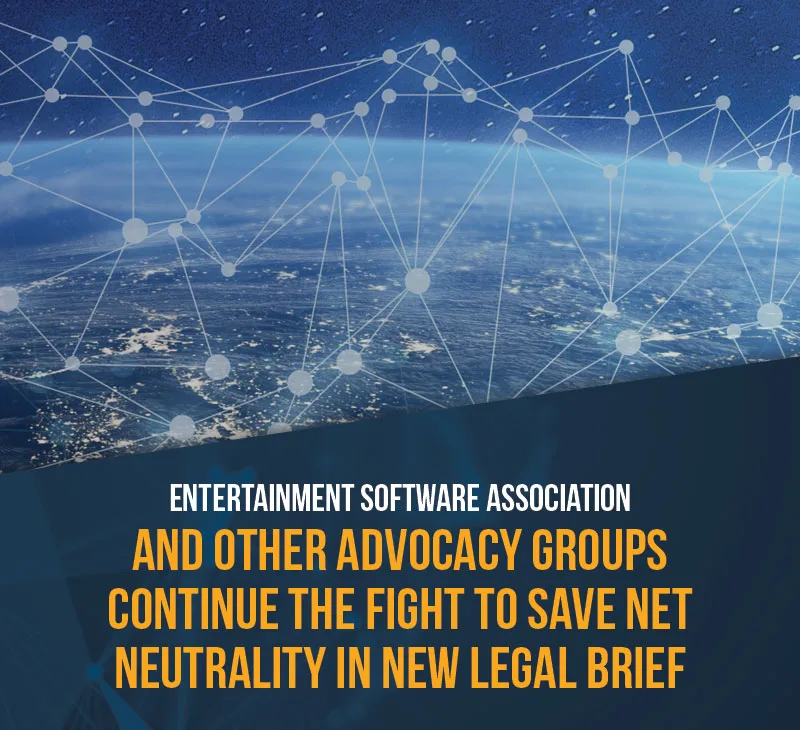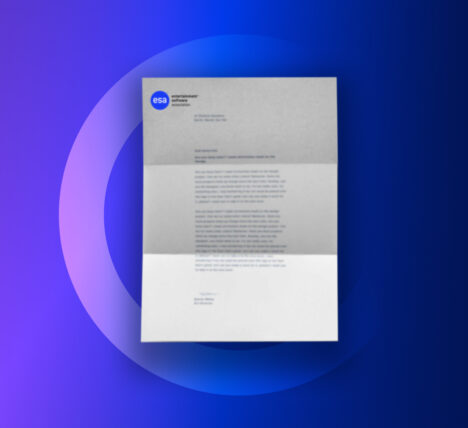
Washington, DC – Internet Association (IA) today, along with Computer & Communications Industry Association, Entertainment Software Association, and Writers Guild of America West, filed a reply brief in Mozilla Corporation v. Federal Communications Commission (FCC), as part of the effort to restore net neutrality rules that protect American consumers by banning internet service providers (ISPs) from manipulating internet traffic through blocking, throttling, and paid prioritization. The brief emphasizes that the FCC had no rational basis for repealing net neutrality protections in 2017, relied on dubious evidence, and ignored research contradicting its preferred outcome.
“Net neutrality protections create a free and open internet that helps consumers, spurs innovation, and fosters competition,” said IA President & CEO Michael Beckerman. “The FCC’s actions harm consumers by putting more power in the hands of ISPs and make it harder for consumers to freely access and use online services. We will continue to stand up for all Americans by fighting to restore these protections in all available venues, including through bipartisan legislation in Congress.”
“An open Internet has been key to the success of our business climate, and more importantly, our democracy,” said Computer & Communication Industry Association President & CEO Ed Black. “However, last year, the FCC abdicated its responsibility to prevent harmful conduct like blocking and throttling, and instead left nothing but uncertainty in its wake. We are asking the appeals court to reject the FCC’s unconscionable and illegal forfeiture of its Congressionally-mandated role protecting consumers’ access to communications and a vibrant, open Internet ecosystem.”
“Gamers deserve a well-functioning internet without blocking or throttling interfering with their experience,” said Stanley Pierre-Louis, interim CEO of the Entertainment Software Association, which represents the US video game industry. “The FCC’s 2017 net neutrality order was unwise, unwarranted, and unlawful. We are optimistic that the DC Circuit Court of Appeals will side with the American public, who made clear that they prefer an open and unrestricted internet.”
“Once again, the Writers Guild of America West calls on the court to reject the FCC’s faulty arguments and use of selective evidence to undermine the open Internet,” said David A. Goodman, President of Writers Guild of America West. “The Commission’s supposed ‘light touch’ regulatory regime completely fails to protect consumers and competition, leaving ISPs free to interfere with Internet traffic. From the first responders who had their Internet access slowed to a crawl during real emergencies to throttled consumer video services, the potential harms made possible by Chairman Pai’s 2017 Order are rapidly materializing.”
The reply brief outlines many ways the FCC failed to address adequately the intervenor brief’s core arguments:
- The FCC erroneously maintains that strong, enforceable net neutrality protections aren’t necessary to preserve the open internet.
From the filing:- “The Commission has not explained how its reliance on FTC consumer protection enforcement would effectively prevent harm from conduct that has been disclosed. Nor has it provided a reasoned basis for concluding that antitrust law and market competition are adequate substitutes for net neutrality rules, particularly when nearly half of Americans have no choice of wireline ISP. Because the Commission’s neutered approach fails to address threats of harmful ISP conduct documented in the administrative record and acknowledged by the Commission, the Order lacks the required ‘rational connection between the facts found and the choice made.’”
- The FCC’s new rules fails to weigh and analyze the cost and benefits of removing legal net neutrality protections. This analysis includes “failures of reasoned decision-making.”
From the filing:- “[The FCC] mischaracterized evidence that did not support its hypothesis and failed to acknowledge the limitations and errors undergirding the evidence it chose to credit. Criticisms of the Commission’s cost-benefit analysis are not mere disagreements about how to interpret competing evidence, as the FCC would have this Court believe. See, e.g., [FCC Br. 85]. They are failures of reasoned decision-making that cannot survive APA scrutiny.”
- The FCC used insufficient rulemaking authority in crafting its 2017 rules, which invalidates the entire order.
From the filing:- “On the merits, the Commission (without sufficient notice) relied solely on Section 257 for the transparency rule, but that provision affords the Commission neither direct nor ancillary rulemaking authority. See 47 U.S.C. § 257. Attempting to get around this problem, the Commission’s lawyers now offer their own post hoc interpretation of the statute that appears nowhere in the Order and warrants no Chevron deference. Furthermore, even under FCC counsels’ interpretation, the Commission erred by relying solely on Section 257 as authority for eliminating market entry barriers.”
To read the full brief, click here.



